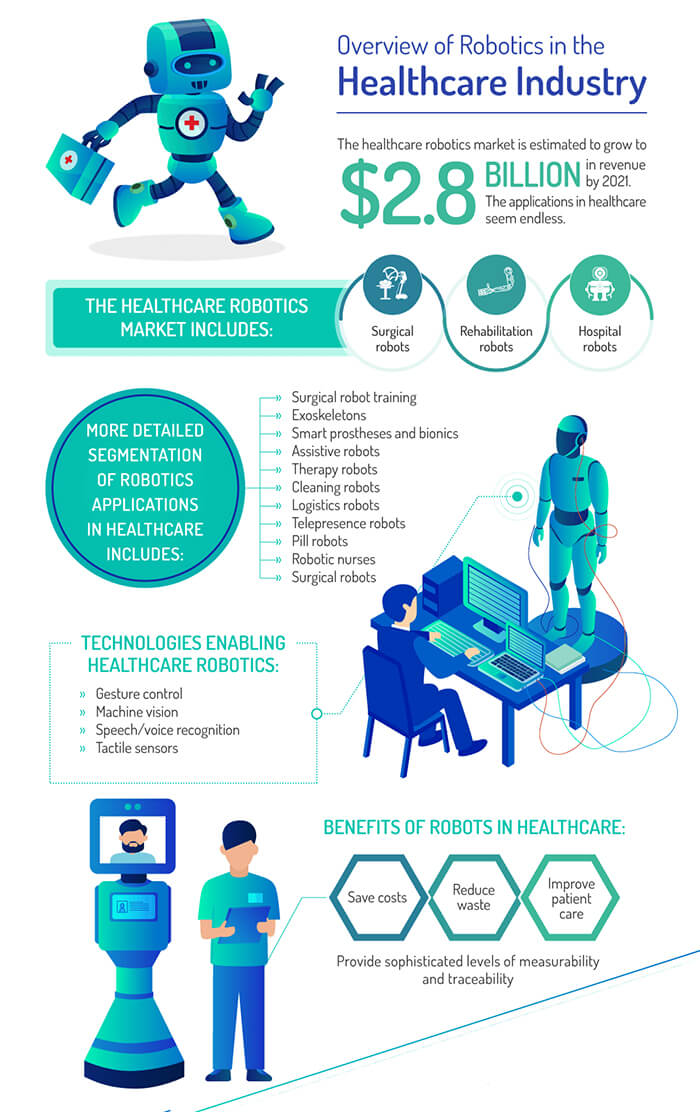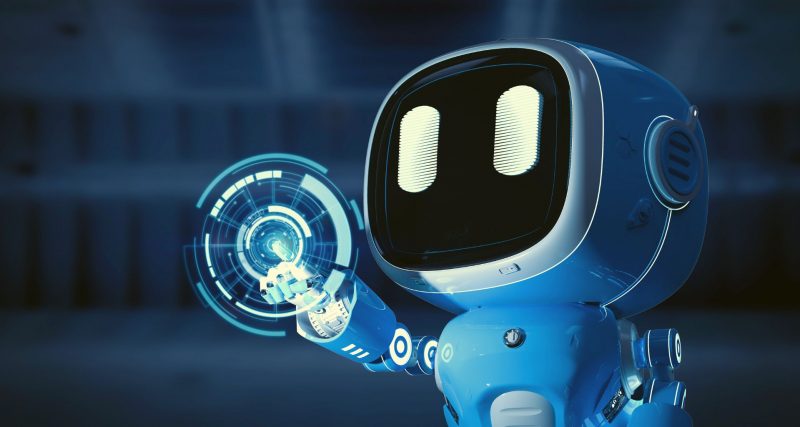The year is 2023, and the world of healthcare is undergoing an exciting revolution. This transition is the fast-changing role of robotics in medicine. Robotics have progressed from sci-fi fantasies to practical reality in recent years, permeating almost every facet of our daily lives. Today, let’s speak about how this drastic transformation is affecting one of our society’s most essential sectors—healthcare—and the issues that come with this digital upheaval.
Prospective Horizons: Robotics’ Potential in Healthcare
A few decades ago, the thought of a robot assisting a surgical procedure would have been considered pure science fiction. It’s no longer just possible—it’s happening! Robotics is transforming healthcare delivery in fields as diverse as surgery, rehabilitation, diagnostics, medicine distribution, and more.
1. Robotic Surgery: A Precision Revolution
Robotic surgery has already had a tremendous influence, thanks to devices such as the da Vinci Surgical System. It enables surgeons to conduct complex surgeries with greater precision and control than traditional methods. Furthermore, it is less invasive, meaning less discomfort, fewer complications, and quicker patient recovery times. The potential of ‘Telesurgery,’ in which a surgeon operates on a patient from a remote location, opens up enormous opportunities for providing competent care even in the most remote parts of the world.
ADVERTISEMENT
2. Rehabilitation Robotics: Aiding Recovery
Robots have also created a name for themselves in the realm of physical rehabilitation. Exoskeletons and robotic prosthetics are helping people with mobility difficulties regain their independence and improve their quality of life. Rehabilitation robots, on the other hand, can give tailored therapy, promoting speedier Recovery of motor abilities after strokes or injuries.
3. Care Robots: Elderly Companions
With the world’s population aging, care robots are developing as a viable alternative to meet the requirements of the elderly. They assist with daily duties, provide medication reminders, and provide companionship, easing the stress on caregivers and ensuring that our seniors may live dignified lives.
4. Nano-Robots: The Drug Delivery of the Future
Consider tiny robots traveling through your circulation to precisely deliver drugs or to seek out and destroy cancer cells. Sounds like a movie scenario. With the advancement of nanotechnology, this could soon become a reality.
ADVERTISEMENT
Like every coin, this technological boon comes with its own set of obstacles.
Navigating the Obstacles: Healthcare Robotics
While robotics has enormous potential, its incorporation into healthcare is complicated. Understanding and overcoming these issues is crucial to the effective acceptance and long-term growth of robotics in this industry.
1. Expensiveness and accessibility
Currently, the exorbitant expense of robotic equipment limits their use to well-funded hospitals in affluent countries. This may exacerbate the healthcare divide by leaving those in underdeveloped countries or economically disadvantaged settings behind.
2. Requirement for Skilled Professionals
Operating healthcare robots necessitates particular training and knowledge. There is an urgent need for educational programs that teach healthcare practitioners how to successfully use these new instruments.
ADVERTISEMENT
3. Legal and Ethical Issues
Robots play a larger role in healthcare and raise many legal and ethical concerns. Who is to blame if a robot commits a mistake? How can we protect patients‘ privacy and dignity? To retain faith in robotic healthcare, these concerns must be adequately addressed.
4. Technological Restrictions
Despite its advancements, robotics technology is continually evolving. It is still a work in progress to achieve the same level of tactile sensation as human hands in robotic surgery or to perfect the autonomy and decision-making abilities of care robots.

The voyage of robotics in healthcare has only just begun, with both promise and problems ahead.
One thing is evident as we cross this exciting frontier: the merger of robots and healthcare can alter how we perceive and receive medical treatment, bringing us closer to a world where excellent healthcare is accessible and efficient for all. While robots will never completely replace the human touch that is essential to care, they may undoubtedly augment it, making healthcare safer, more efficient, and, ultimately, more compassionate.
So, are you ready to accept healthcare’s future?








